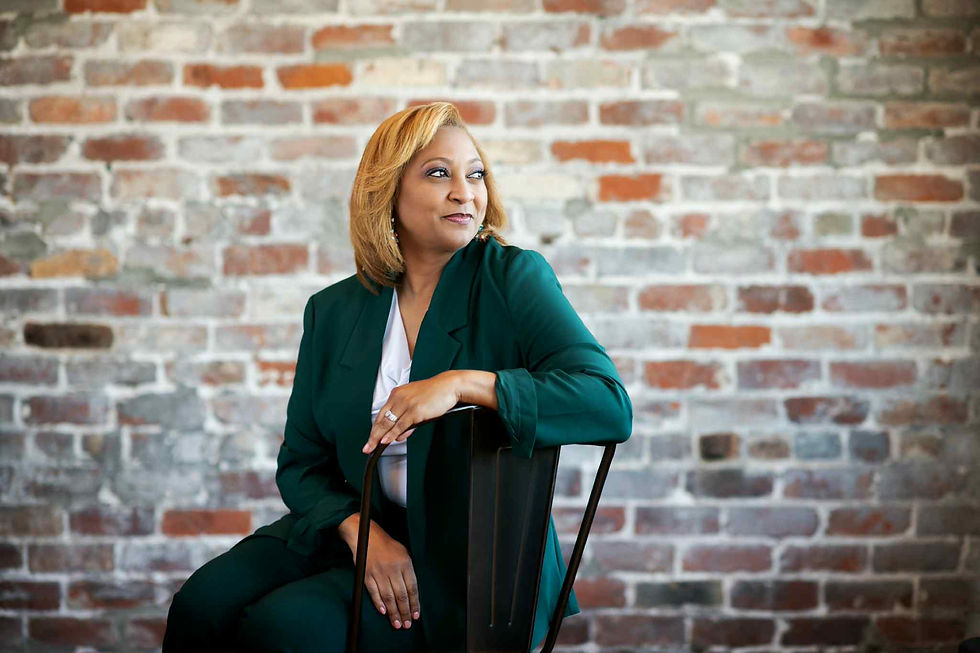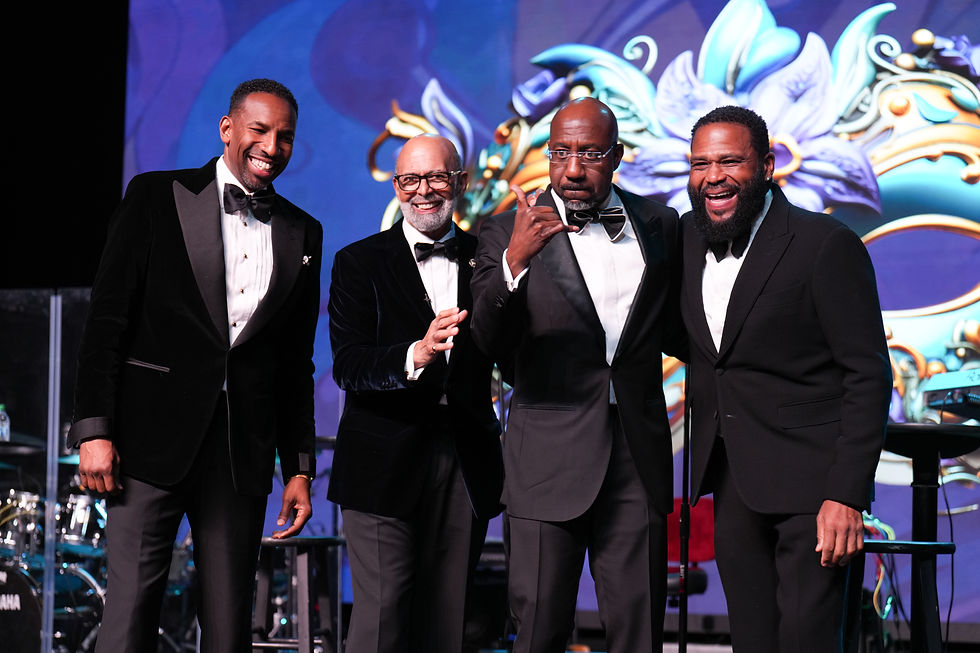Leading With Truth: Markey Pierre on Power, Equity & Purpose-Driven Leadership
- Quadir Thomas
- Nov 18, 2025
- 4 min read

Markey Pierre has built a career at the crossroads of policy, education, and advocacy—shaping conversations, challenging systems, and elevating voices often overlooked. With a reputation for balancing academic insight and political strategy, she moves seamlessly between classrooms and conference rooms, carrying a leadership style rooted in purpose, preparation, and connection.
In this exclusive conversation, she opens up about the realities of navigating power as a woman of color, the misconceptions that still cloud leadership, and the principles that drive her work in public service and higher education. Her insights are both a masterclass in negotiation and a blueprint for building equitable, lasting change.
ITCM: You’ve built a powerful reputation in both academia and government relations—how do you navigate the balance between being an educator who inspires and a negotiator who must often challenge the status quo?
MARKEY PIERRE: I’ve spent years cultivating relationships in both academia and government relations, and I’ve learned that all relationships matter - every voice, every perspective, every partnership. The key is understanding what’s important to each stakeholder.
Navigating between the two worlds actually holds more similarities than people realize. In government relations, you’re often an educator - telling the story of your client, helping others see the value and purpose behind an initiative. In higher education, the same principles apply, but the audience shifts. You take the concepts you’re teaching and weave them into stories that make sense in a student’s world - stories that make learning real and relevant.
At the heart of both roles is connection. Whether I’m in a classroom or a boardroom, my goal is to educate, advocate, and inspire understanding. That’s where meaningful change begins.
ITCM: In your experience leading within political and educational systems, what’s the biggest misconception people have about women in positions of power and influence?
MARKEY PIERRE: A big misconception that I have faced in my career is that women, particularly women of color, must leave parts of themselves at the door. The experience has given me an unapologetic sense of self and taught me that authenticity isn’t a liability; it’s a superpower. When you lead with your full self, you not only earn respect, you can create space for others to do the same.
There’s a persistent expectation that we should either soften our voice to be likable or harden our edges to be respected. In reality, strength and empathy are not opposites, they’re complementary. Real leadership will require both. I’ve found that when women lead with clarity, conviction, and compassion, we don’t just occupy space — we transform it.
ITCM: When entering high-stakes negotiations, whether in the public sector or academia, what guiding principle or strategy has consistently shaped your success?
MARKEY PIERRE: My guiding principle has always been preparation with purpose. I never enter a negotiation focused solely on winning; I enter focused on understanding. When you know your values, your data, and your “why,” you can navigate any room with confidence. I believe in principled persuasion — listening deeply, finding alignment where others see conflict, and never losing sight of the greater mission.
It’s also about clearly identifying what a win looks like. A win for you may not necessarily be a win for me — and that’s where strategy and empathy intersect. Success isn’t always about getting everything you want; it’s about achieving meaningful progress that moves all parties closer to the greater good. For me, a true win is one that stands the test of time because it’s rooted in purpose, not ego.
ITCM: How has your background in governmental affairs influenced the way you mentor and develop future leaders, especially those pursuing careers in public service or higher education?
MARKEY PIERRE: Every relationship matters. My background in governmental affairs has taught me that progress is built through people — through relationships, trust, and shared purpose. I make sure my mentees understand that they are not alone in doing this work. Leadership can feel isolating at times, but when we lean on one another, we grow stronger together.
I love the opportunity to share lived experiences and explore different and unique perspectives. Mentorship isn’t just about teaching; it’s about exchange. It’s an opportunity to leave a legacy — to share your knowledge, expand your network, and gain fresh insights from emerging leaders.
I can say with firsthand knowledge that mentorship isn’t just about guiding others, it also presents the opportunity for you to grow together. That, to me, is the true measure of leadership

ITCM: As someone who has mastered the intersection of policy, leadership, and advocacy—what do you believe institutions must do differently to create sustainable, equitable change that goes beyond performative reform?
MARKEY PIERRE: Institutions must move from performative equity to transformative equity. Real change requires courage - the courage to confront bias in systems, not just in people; to diversify not only who is at the table, but who builds the table. Policies and initiatives mean little if they’re sitting on a shelf and never operationalized with accountability and measurable outcomes. Equity isn’t a trend, it’s a commitment.
My role is to help institutions move from intention to implementation. As someone who has worked across government, higher education, industry, and community sectors, I guide organizations in translating principles into practice, ensuring that strategy, structure, and culture are aligned. I see myself as both a partner and a truth-teller, helping leaders build systems that reflect their stated values.
That’s how sustainable, equitable change truly takes root.

Markey Pierre’s journey reinforces a profound truth: leadership is not defined by titles or positions, but by courage, clarity, and a commitment to move communities forward. Her voice remains a steady reminder that equity requires action, influence demands authenticity, and progress is built one relationship at a time.
As institutions wrestle with the difference between what they proclaim and what they practice, Pierre stands as both guide and catalyst—pushing conversations toward purpose and helping leaders transform intent into impact. Her work continues to shape new pathways for those who will carry the torch next, proving that change isn’t just possible—it’s inevitable when led with conviction.



Comments